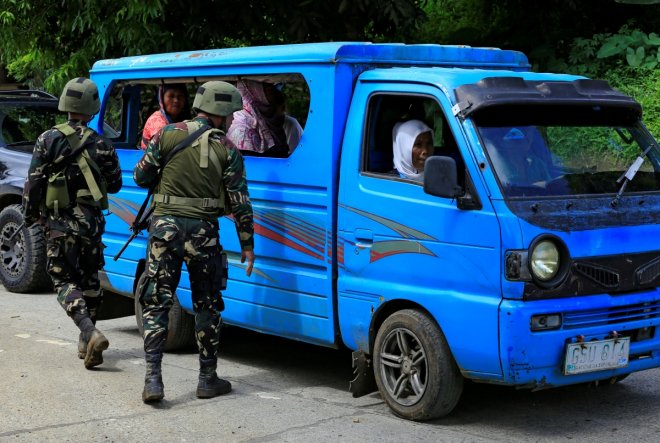
Singapore's Ministry of Home Affairs (MHA) spokesperson said on Friday that a Singaporean man has been implicated in terrorism-related activities in the southern Philippines. The man has been identified as Muhamad Ali Abdul Rahiman @ Muawiya, who has been staying in the southern Philippines since the 1990s.
But, MHA added that there is no information about whether he is involved in the armed insurgency in Marawi City on Mindanao island. The Philippine army has been trying to flush out rebels of the Islamic State-linked Maute group from the island.
"We will continue to work with the Philippine authorities to identify any Singaporean who may be involved in terrorism-related activities in the Philippines," a MHA spokesperson told Channel NewsAsia.
"We take a serious view of anyone who supports, promotes, undertakes or makes preparations to undertake armed violence regardless of where the violence takes place," he added.
The MHA statement comes after the Philippines authorities said on Friday that Singaporeans are among the foreign nationals fighting in Marawi City.
Earlier at a press briefing, Philippines Armed Forces spokesman Brigadier General Restituto Padilla said that there were foreigners who had "long been in the country aiding in the terrorist activities". He identified Singaporeans, Malaysians and Indonesians as part of the group.
However, BG Padilla did not reveal any further details on the supposed Singaporean fighters, or their roles in the Maute group. But, he said that six foreign fighters are believed to have been killed in the Marawi fighting, including Malaysians, Indonesians and another nationality which he did not specify.
Solicitor General Jose Calida, Philippines' chief lawyer, said these foreign fighters had heeded a "clarion call" of IS to travel to Mindanao to put up a "wilayat" or IS province, if they could not go to fight in Iraq or Syria.
"What is happening in Mindanao is no longer a rebellion of Filipino citizens. It has transmogrified into an invasion by foreign fighters," Calida told Today Online in the southern city of Davao.
"People they consider as infidels, whether Christians or Muslims, are also targets of opportunity," he said. "What it worrisome is that the ISIS has radicalised a number of Filipino Muslim youth."
He added: "Before it was just a local terrorist group. But now they have subscribed to the ideology of ISIS (Islamic State).
On Tuesday, the fighting started after a bungled raid by security forces on a Maute hideout, which spiralled into chaos, with gunmen seizing bridges, roads and buildings and taking Christians hostage, forcing most of Marawi's 200,000 inhabitants to flee. President Rodrigo Duterte responded to the situation by declaring martial law throughout his native island of Mindanao.
The raid took place at a house where the security forces believed Isnilon Hapilon, a leader of the infamous Abu Sayyaf kidnap-for-ransom gang and Philippine head of IS, was hiding. The raid went spectacularly wrong as dozens of gunmen emerged to repel the security forces, then went on a rampage across the city while flying black IS flags.
According to Gen Padilla,11 soldiers, two policemen and 31 militants had been confirmed killed in the fighting. It also involved the military bombing buildings where the militants have been hiding.
The authorities said two civilians were also killed inside a hospital that the gunmen had occupied on Tuesday.The military was investigating reports that nine people had been murdered at a checkpoint the militants had set up.
The United States listed one of the world's most dangerous terrorists and has offered a bounty of US$5 million (S$6.9 million) for his capture.
Authorities said ending the crisis was proving extremely hard because the militants were moving nimbly through homes, had planted bombs in the streets, and were holding hostages.
They said militants had also occupied higher ground in the city, enabling them to slow down or stop assaults from the security forces.









